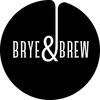FAQ
Frequently Asked Questions
WHAT IS THE HISTORY OF KOMBUCHA?
HOW MUCH SHOULD I DRINK?
Everyone has a unique system, therefore we suggest you to listen to your body when trying to determine the appropriate amount for you. However, if you are a first-time drinker, it is best to slowly introduce Brye&Brew Kombucha to your system, just about 4 to 6 ounces before breakfast and gradually increase your intake as desired.
IS THERE ALCOHOL IN KOMBUCHA?
Due to natural fermentation, and unpasteurized way of production, our Kombucha contains a trace amount of alcohol of about 0.5% ABV which is the threshold to be deemed a “non-alcoholic” beverage.
WHAT ARE THE FLOATIES IN MY BOTTLE?
These are strands of healthy culture and safe for consumption. Most of the brewers called it as SCOBY (Symbiotic Culture of Bacteria and Yeast). The SCOBY is not visibly present at the time of bottling, but forms overtime as an indication that the culture is alive and active.
IS IT SAFE FOR PREGNANT WOMEN?
Though Kombucha is safe for everyone’s’ consumption, it is always important for pregnant women to consult with their physicians.
IS IT SAFE FOR KIDS?
Everyone of all ages can enjoy our brews. Same with kids, but we highly recommend consulting with a health professionals on any matter that concerns your children’s health, including food and beverage that they may consume.
WHAT IS THE SHELF LIFE?
We set our expiry for 2 months after bottling it. But technically, Kombucha takes longer to expire than other fermented beverage because of its low pH.
If you let your Kombucha sit unrefrigerated long enough, or passes too far beyond the given expiry date, It may become over carbonated (natural carbonation) and vinegary Kombucha. Just like your regular cider vinegar.
HOW MUCH SUGAR IN IT?
The sugar is only intended for the Kombucha culture. Before fermentation, we allocate approximately 20 grams of cane sugar per bottle. That’s about 1 1/2 tbsp.
The cultures consume the sugar and tannins from the tea and turn it to organic acids and probiotics.
After two weeks fermentation, most of the sugar are already been consumed.
HANDLING AND STORAGE
Kombucha becomes highly active when stored in room temperature (more than 20C). It may result to overcarbonation, early maturity and bottle explosions. We always recommend to store it upright in the chiller. Do not shake, treat it as your regular soda pop. Best served when chilled.
